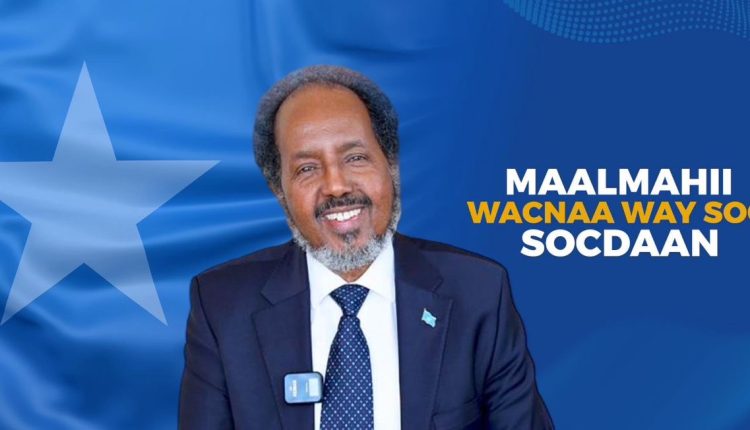Sep 01 (Jowhar) The article in question offers a critical view of President Hassan Sheekh’s leadership, questioning his effectiveness in addressing Somalia’s domestic challenges and external threats. It suggests that his rhetoric does not translate into meaningful actions and portrays a picture of a country on the brink of fragmentation due to flawed strategies and internal conflicts.
However, this perspective overlooks significant achievements, underestimates the complexities of Somalia’s political landscape, and fails to acknowledge the strategic efforts made by President Hassan Sheekh to navigate these challenges. A closer examination reveals a more nuanced reality, where deliberate actions are being taken to protect Somalia’s sovereignty, promote reconciliation, and ensure long-term stability.
While the article claims that President Hassan’s words are “hot air,” it overlooks tangible actions his administration has taken. Under his leadership, Somalia has made strides in enhancing security, eliminating al-Shabaab in large parts of the country, and initiating reforms aimed at economic recovery. These actions reflect a commitment to both domestic stability and protecting Somalia’s sovereignty.
The assertion that President Hassan Sheekh lacks popularity and credibility is subjective. His re-election is a testament to his political acumen and the trust placed in him by significant segments of Somali society. Moreover, he has demonstrated diplomatic skills by engaging regional and international partners to address Somalia’s challenges. His seasoned experience and understanding of Somali politics position him uniquely to navigate the complex landscape.
The claim that his strategy of arming clan militias has reignited clan warfare requires context. Somalia’s clan dynamics are deeply rooted and predate his administration. The decision to involve local militias was a pragmatic move, acknowledging the reality that these groups are already influential.
The strategy is aimed at empowering local communities to defend themselves against extremist threats while the central government builds its capacity. Efforts are being made to integrate these militias into a broader, unified national security framework.
Somalia’s struggle to maintain full control over its territory is a consequence of decades of conflict, not a failure of current leadership. Sovereignty is being gradually reclaimed through ongoing efforts to strengthen national institutions, counter external interference, and negotiate with domestic factions.
The article suggests that peace among Somalis should be the president’s primary focus. In reality, President Hassan Sheekh has repeatedly emphasized reconciliation and dialogue, recognizing them as essential to Somalia’s long-term stability.
The challenges with Hargeisa (Somaliland) and the internal rifts are not due to a lack of effort or intention from Mogadishu, but rather reflect the complexity of historical, political, and clan-based issues. The government is committed to dialogue and finding peaceful solutions to these disputes.
Finally, the article underplays the nuanced and balanced approach President Hassan Sheekh has taken toward Ethiopia. Diplomatic engagements have been prioritized to manage tensions and avoid escalation. His administration is working to build alliances with regional and international actors, ensuring that Somalia’s sovereignty and territorial integrity are respected while seeking peaceful coexistence with its neighbors.
In summary, while challenges undoubtedly remain, President Hassan Sheekh’s leadership reflects a strategic and balanced approach to navigating Somalia’s complex political landscape, securing sovereignty, and promoting national unity. It is essential to acknowledge the progress made and the ongoing efforts, rather than dismiss them as ineffective.
Abdullahi Hassan Mohamed (Samoow)
Abdullahisamoow@gmail.com

